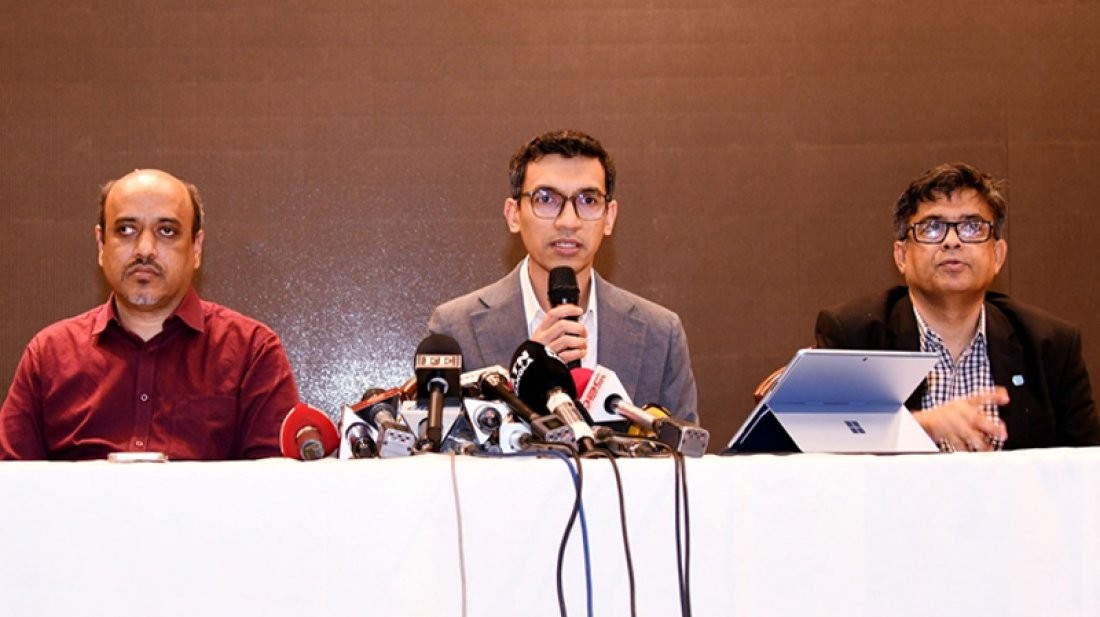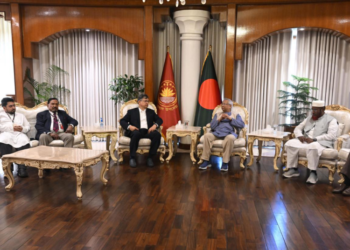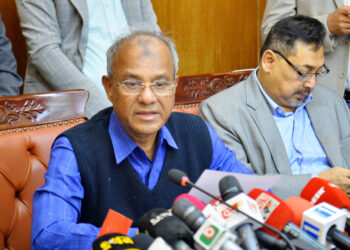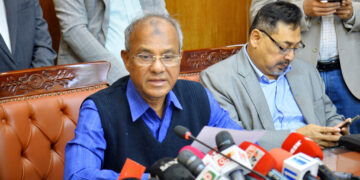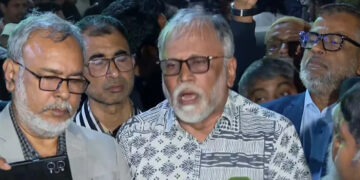When a global tech powerhouse like Samsung sets its eyes on your country for a multi-billion dollar investment, it’s usually seen as a turning point. For Bangladesh, that moment came and slipped away. In a revelation that has stirred both frustration and reflection, BIDA and BEZA Executive Chairman Chowdhury Ashiq Mahmood Bin Harun disclosed that Samsung was ready to invest $22 billion in the Korean Export Processing Zone (KEPZ) in Chattogram.
But due to unresolved land mutation issues and a lack of swift government action at the time, that game-changing investment didn’t materialize. Instead, Samsung turned to Vietnam, taking billions in capital and untapped opportunities with it.
This isn’t just a story about paperwork it’s about what could have been. It’s a sobering look at how bureaucratic inertia can cost a country dearly, and a wake-up call for what needs to change to ensure Bangladesh doesn’t miss the next big opportunity.
The Missed Chance: What Actually Happened?
According to Chowdhury Ashiq, Samsung had expressed deep interest in investing in the Korean Export Processing Zone (KEPZ), located in Chattogram. The KEPZ, an initiative launched by the Korean conglomerate Youngone Group in 1995, was envisioned to be a hub for high-tech and export-oriented industries. Samsung saw potential and was ready to bring in a transformative investment that could have created thousands of jobs and positioned Bangladesh as a serious player in the global electronics supply chain.
However, the project ran aground over a relatively technical issue: land mutation. Despite Samsung’s enthusiasm, the company could not receive a clear answer on when the legal and administrative issues regarding the land’s documentation would be resolved. Frustrated and running out of patience, the tech giant finally pulled out and redirected the investment to Vietnam a move that altered the trajectory of industrial investment in the region.
“We Could’ve Had It All” – BIDA Chairman Speaks Out
At a press briefing held on April 7 at Hotel InterContinental, during the inaugural session of the Bangladesh Investment Summit 2025, BIDA Chairman Chowdhury Ashiq laid bare the events that led to the collapse of one of the country’s most promising investment opportunities.
“Samsung was ready,” he said. “But the previous administration couldn’t resolve a land mutation issue for ten years. If they had acted swiftly, that investment would’ve stayed in Bangladesh.”
The Chairman didn’t mince words when he pointed fingers at the inefficiency of the past government. He remarked, “They thought the land couldn’t be handed over to KEPZ. But the current government solved this issue in just two months.”
Such a statement not only highlighted the red tape that plagued the past administration but also threw light on the power of political will and efficient governance in attracting foreign direct investment (FDI).
A Love for Bangladesh Lost in Bureaucracy
The emotional weight of the story deepened when Ashiq shared insights from his conversation with Ki-Hak Sung, Chairman of Youngone Corporation, the founding company behind KEPZ.
“I love Bangladesh. I do business here. But Samsung had to leave because we couldn’t tell them when the land documents would be ready,” Sung reportedly told him during a meeting in September last year. These words ring heavy not only with regret but also with an implicit message: foreign investors want clarity, not promises.
Turning the Page: What’s Changing Now?
After taking office, Ashiq formed a dedicated team at BIDA under the banner of “Project Ambassador.” This task force was responsible for high-level inter-ministerial coordination and worked closely with the Chattogram District Commissioner’s office to resolve the decade-long land issue within two months a feat that seemed impossible for years.
This shift shows that with coordination, accountability, and leadership, structural barriers to investment can be removed quickly.
Read More: Transforming the Global Stage: Amazon’s Marketplace and the Rise of Empowered Entrepreneurs
Hope Rekindled: New Korean Interest in Bangladesh
Despite the lost Samsung deal, all is not bleak. In a hopeful turn, Ki-Hak Sung arrived at this year’s investment summit with around 30 Korean investors. He is now personally encouraging them to invest in Bangladesh. According to Ashiq, this is a promising sign that with the right environment and streamlined policies, Bangladesh can still attract meaningful investment from global giants.
“We’re committed to ending red tape. We’re coordinating with all ministries to ensure this doesn’t happen again,” Ashiq stated.
What Could Have Been: The Economic Impact of $22 Billion
To grasp the scale of what was lost, consider this $22 billion is nearly 6% of Bangladesh’s total GDP. If Samsung’s investment had gone through, it would have led to a huge transfer of technology, a spike in high-paying industrial jobs, and a significant boost to export capabilities.
Moreover, this would have diversified Bangladesh’s economy, which currently relies heavily on garments. Electronics manufacturing specially in partnership with a global player like Samsung could have marked the dawn of a new industrial era. But all that was missed due to one administrative gap land documentation.
Why Bangladesh Still Has a Competitive Edge
Despite the painful lesson, Ashiq remains optimistic. In his interaction with the media, he pointed out that Bangladesh still offers lower operational costs compared to regional competitors like Vietnam, Cambodia, and Thailand.
“Electricity, gas, water, and even land our costs are still competitive. Plus, our workers are quick learners,” he emphasized.
This combination of affordability and adaptability, he believes, makes Bangladesh a viable long-term investment destination provided the government continues to cut through the bureaucracy.
Startups Also in Focus
In a more inclusive tone, Ashiq mentioned that BIDA is also looking beyond multinationals and big-ticket investors. Startups are on the radar too. “We’ve sent a message we’re here for startups. We want to support everyone, from early-stage founders to global corporations,” he said. This shows a more balanced and future-ready approach to investment, where homegrown innovation is nurtured alongside foreign capital.
The Road Ahead: Sustained Communication and Commitment
Ashiq concluded with an important reminder that investment is not a one-day affair.
“We’ll maintain continuous contact with the foreign investors attending the summit for the next 6 to 12 months,” he said. “It’s a process. Our goal is to turn interest into action.”
And that’s the lesson Bangladesh is now learning and building investor confidence takes consistency, transparency, and swift action.
Final Thoughts: A Hard Lesson, A Brighter Tomorrow?
The Samsung story is both a cautionary tale and a call to action. It reminds us how fragile investor confidence can be and how costly delays can become when there’s no clear road map.
But it also shows that when leadership aligns with vision, change is possible. With new momentum and clear-eyed commitment from BIDA, BEZA and the current government, Bangladesh still has the chance to re-write its investment story. The $22 billion may be gone but the future is still in play.
Share via:

